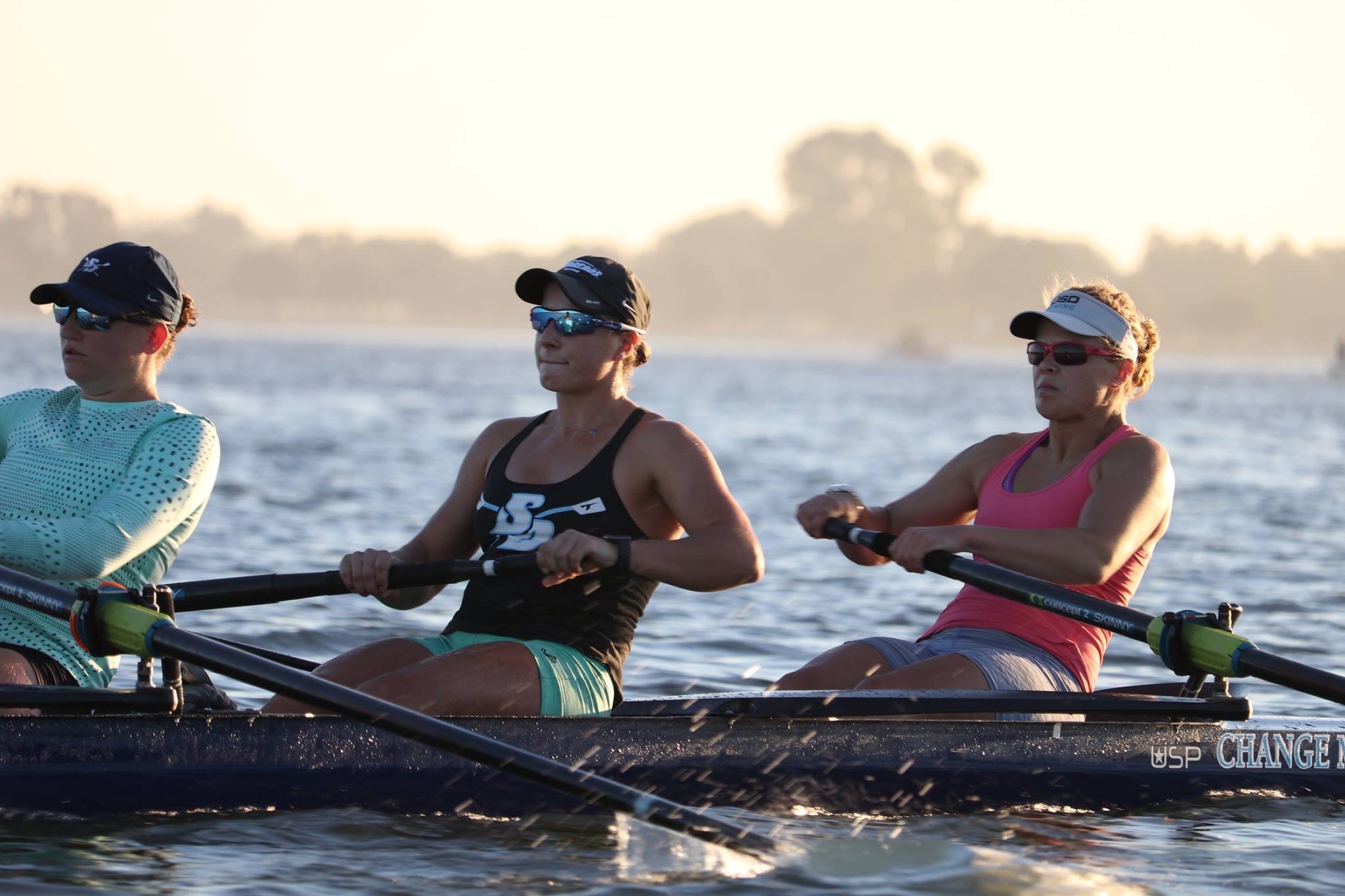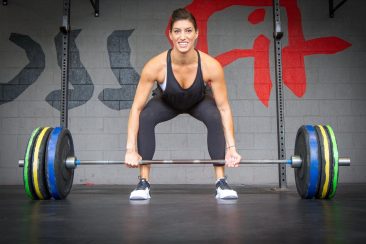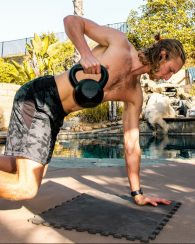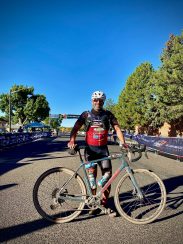Get your silly caps on, this one is going to make you smile. This week's Happy Hour guest is our very own Jane Bird. Aside from crushing her job here at SportRx Jane is also a former D1 Rower and current Surfer soul. Read on to learn more about our rad Jane Bird.

"Living large right now! Couldn't get any better"
G: Jane hey! I was just telling everyone my first memory of you from when I was interning here, you were the chick who always went out to surf on her lunch break.
J: Well yeah SportRx is a great company that lets you do that so shoutout to them honestly.
G: Lets jump right in. Tell us about the first sports you picked up as a kid.
J: Gosh I kind of tried it all. I would say one of the first sports I ever did was horseback riding because my mom was really into it so we would do a few jumping events. But then all my friends started playing soccer and I was like shoot I want to do what all my friends are doing, so I switched to soccer. I played golf for a bit, track, basketball, a little bit of tennis but I've really tried it all. I didn't get into rowing until my spring season of junior year of high school. Pretty late in the game for that but I ended up going to college for that eventually. So at least I made it eventually.
G: No that's amazing, to get into a sport so late and get into college for it.
J: Yeah totally, it was funny because I was away at a soccer tournament and when I came back my dad told me he signed me for rowing in the spring and I was like great dad, I was going to do track but okay. I mean now I'm thankful for it but I wasn't at the time.
G: That helps move into your new sport though, endurance-based sport. At least you had those skills and motor built-in.
J: Yeah rowing is fitness based, so if you come into it being a relatively fit human you're already going to be ahead of the curve. Then the technique of rowing can be relatively easy to pick up, so that helped me playing sports growing up. It got my baseline fitness pretty high and then from there, I was able to pick up technique and hit the ground running.
G: So when you were in high school you said you were playing soccer and rowing, were you competing in both those sports at the same time?
J: Yeah that spring I was playing travel soccer and I was on the rowing team. I was just dead to the world. I would go from school to a 2-hour rowing practice straight to 2-hour soccer practice. So yeah I was very fit, I liked that, but I also was very exhausted and tired so I don't recommend it.
G: Yeah just trying to balance school and one sport is a lot, then to add another sport is insane!
J: Yeah well, we made it, so here I am.
G: Talk about the jump from being a high school athlete to the college level.
J: Yeah basically so I started rowing that spring season and then I joined this summer team where you can make it to the national level. I made the top boat at that summer camp and we ended up getting second at nationals. So at the end of that summer is when all the recruiting happened for me because I had some high-level races under my belt with good performances. I ended up going to the University of San Diego but I was recruited by Berkley, OSU, Tennessee, UW, but yeah I chose San Diego, mostly because of the weather and with rowing if you're rowing in a cold place, all the winter months you're just rowing on a machine and I knew I didn't want to do that. The whole purpose of rowing is to be out on the water, enjoying being outside. But recruiting can definitely be a struggle, to find the very best fit for you but I'm happy I ended up where I did.
G: Yeah I graduated from USD so cheers to that. So you move to San Diego, a great place to row, what was it like to compete at the college level here?
J: It was amazing. So USD it is a smaller, private, catholic school but at one point we were ranked 14th in the nation for D1 so we did very well. Definitely competed against all the big dogs. I met a lot of cool people through the program. Basically it's like a 20-hour per week training schedule so it's like a full-time job. That's not even including going to the training room, driving there, doing warmups, that's strictly being on the water, actual rowing hours. So it was a big-time commitment but I loved my team, it was awesome to be surrounded by 40 of your best friends every day. So I had a great time.
G: Yeah that plays a huge role in any sport even if it's an individual sport it helps to have that cast of people around you.
What would you say was the biggest challenge from all of that?
J: For me, it was injuries. I dealt with a lot of them throughout my college career. Lower back problems, I got sciatica, a few bulging discs, my hip is all messed up which makes my right leg 2 cm shorter than my left leg. I got a stress fracture in my rib, a concussion, which wasn't related to rowing because it's definitely not a contact related sport. But finding your level where you can compete because your injury has healed or finding the right rehab, any injury was a constant struggle. Tons of people on the rowing team struggled with that. I think because its such a repetitive movement you find a lot of back injuries because you're arching over to put your blade in the water, its kind of a funky movement. But that was definitely the biggest struggle.
G: Yeah I had surgery on my elbow to repair it from pitching, the same thing on that repetitive movement. Not natural to do it that often. If you can't stay healthy in any sport, its just another added stress.
J: Yeah and then you have coaches pushing you to get back as soon as possible because you want to show up for your team, it sucks to be on the sidelines. It almost feels like you're losing fitness, and so on top of that, you feel like you have to regain that strength too. Yeah, it's tricky.
G: So in a lot of college sports there is a championship like the NCAA basketball tourny or the College world series for baseball. What's the rowing championship like?
J: It's really interesting actually. So you only have one race that decides whether you go into the NCAA tournament. Its called WCC West Coast Conference Championships. That's in May, so really you're training all through spring, fall, all 20-hour weeks, all for a 6-minute race which decides your fate. You do other races but that basically just practice for that WCC race. Then that 6-minute race determines whether you go on to the NCAA tournament. Its really high pressure.
G: We've had a lot of endurance athletes on the show but this is the first time I've heard of a "one game decides all structure. I can't imagine having a whole schedule with only one race that really matters and everything else is totally separate. I can't imagine the stress that goes into that race.
J: Oh yeah we did the math and it was almost 200 hours of training per 1 minute of that race. The ratios are crazy!
G: With all that time you spent getting out there and racing with your team, do you still get out now and row on your own?
J: Oh no, no no I don't. Well, there is one event, it's in San Diego its the biggest spring rowing event in the country, its called the San Diego Crew Classic. They have an alumni boat so we chose 6-8 alumni that get to hop in the boat. Sometimes it's serious and sometimes some people go in the beer garden beforehand and then hop put there. It is a little more light-hearted which is great. But that's really the only time I get back out there, only because I've found when I start doing the rowing motions again, all my injuries are like Heyy we're back, ready to party. Not fun!
G: Well hey, you're still getting out on the water with a different sport these days. Tell us about your surfing and how you got into it.
J: Yeah so I actually got a summer job as Mission Bay Sports Center after my freshman year of college. I was just a normal camp counselor, I taught kids how to ride a catamaran, paddle, sail, kayaking, all that, then the surf team, they needed more people for surf instructors. They asked if anyone knew how to surf and immediately I shot up my hand ME ME I know how to surf. I did not know how to surf, fudged that on my resume but it seemed like a way better time, to be out of the ocean and bring kids into waves rather than dragging kids on paddleboards around the bay. So I went home that night and watched every video on how to teach surfing and showed up the next day and just faked it till I made it. Then the end of that summer I got pretty good.
G: So you're proof that youtube can teach you anything!
J: Exactly!
G: So you kind of bs'd your way into teaching, how long till you got good on the board?
J: Probably the end of that summer, but it wasn't that pretty. It was enough that people would think ah yeah she qualified enough to teach small children how to surf. But definitely not where I was crushing them or doing crazy tricks, pretty basic. I think now I'm up to surfing 10 ft waves, so I'd say I've come pretty far.
G: Wow yeah sounds like it. How do you like surfing in San Diego? Do you have a favorite break you like to go to around here?
J: Yeah I really like Sunset Cliffs. It's a little sketchy because you walk down this stairwell at the end of the cliffs and there's a giant boulder so you have to wait for a wave that's coming in before you can jump in and time it well enough that you don't hit rocks. But I like it because its the longest waves. You can ride the wave for about a minute rather than popping up and the wave is over.
G: I think the location also makes it great. It's an amazing setting and it's kind of a San Diego secret.
J: Yeah that's one of the reasons I like it so much, it's mostly locals. There's a crew out there that call themselves the Sunset Cliffs Social Club so they go out surfing right there at that spot, surf and then hit up the beach right there and slam back beers after surfing. It's really hilarious!
G: Yeah it's cool that we have these communities. So close-knit. What would you say is your favorite part of surfing?
J: I would say that every time you go out it's different. It can be a big wave day or a small wave day, the tides are changing, the water temperature, I feel like I have a different experience every time I go out there. Its also just very meditative for me. If I don't surf for a long time I feel myself getting very antsy and it's a mental reset. Going in the ocean, in general, is for me, but surfing is a beautiful and athletic thing intertwined. That's definitely my favorite part.
G: I love that! I think that's why a lot of people surf, you go out there its therapeutic and peaceful, just a new experience.
J: Totally!
G: Well maybe I'll have to give it a try sometime. We'll have a SportRx surf trip, I'll have you and TJ take me out there, Tess too! My dad will be super proud!
Well Jane, as we wrap up here, tell us what your go-to sunglass grab is.
J: I really like my pair of Maui Jim Shave Ice they're a great lifestyle frame, but on the water, I have my pair of Oakley EV Zero Path. I would say every rower wheres sunglasses because the reflection off the water is totally blinding. I even have frames that are made for deep water, my Oakleys.
G: That's rad! Thanks for coming on Jane, you're also super rad, anything you want to plug?
J: Hmm go out and get in the ocean today, its a beautiful day so do that! Also plug your upcoming podcast, which is exciting, you already have so many cool guests qued up. And then just huge plug to the SportRx Instagram that gets to host these cool little chats.
G: Awesome! Well thanks everyone for tuning in, follow Jane on Instagram, watch her catching some waves and more of her dog Leah, lots of dog content. Follow and like us on youtube and Facebook too, we'll send you cool swag to you if you do!





